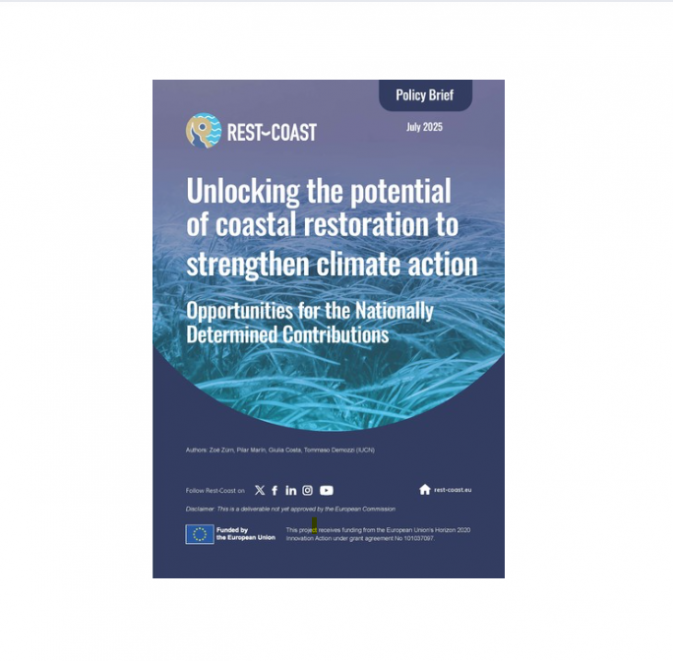
REST-COAST publishes two new policy briefs on coastal connectivity and climate ambition
The REST-COAST project has recently published two policy briefs, developed by our colleagues at IUCN as part of Deliverable 5.5 of the project. The documents outline how improving source-to-sea connectivity supports resilient coastlines.
Coastal areas are vital ecological zones where land and sea meet, supporting rich biodiversity and essential ecosystem services; however, certain activities, such as pollution and coastal development, have led to the decline and fragmentation of these ecosystems. Restoring coastal ecosystems and enhancing the natural connections are interrelated goals that promote ecological resilience and sustainability. Connectivity’s role in maintaining coastal resilience aims to advance the discussion on connectivity in coastal areas by outlining key considerations for its definition, management practices, monitoring and benefits to ecosystem services.
Additionally, the upcoming revision of Nationally Determined Contributions (NDCs) under the Paris Agreement offers a key opportunity to strengthen climate commitments. Coastal ecosystems are crucial for carbon sequestration and climate resilience, yet they are vulnerable to stressors like climate change. The degradation of these ecosystems threatens the physical, economic and food security of coastal communities. Thus, restoring these ecosystems is essential for enhancing climate policy and ensuring a sustainable future for these areas and society as a whole.
Unlocking the potential of coastal restoration to enhance climate action brief highlights the significance of Blue Carbon Ecosystems (BCEs) and their restoration efforts for climate initiatives. It also reviews how well these ecosystems are currently acknowledged and integrated into Nationally Determined Contributions (NDCs). In addition, the document identifies a critical opportunity to include BCEs in the NDC revision cycle in 2025, as well as in future planning and decision-making processes related to climate and biodiversity objectives.
These two policy briefs underline the need for coordinated governance, ambitious yet achievable restoration targets and long-term commitments to secure the health of Europe’s coastal environments, enhance ecosystem services and accelerate climate adaptation and mitigation.
We invite you to read the full policy briefs for a detailed overview of the findings and recommendations.